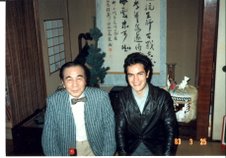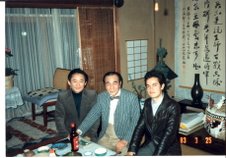Munirando II: A belated but but very welcome première

The opportunity offered itself to me when one of the postgraduate violinists asked me to write a piece for their masters recital. This felt exactly right: it was a logical next step after Fuego and Peregrine, and it would enable me to work more closely with one of these outstanding young virtuosi. I set out to write a piece that would deploy the virtuosity that clearly was on offer, and I also wanted to challenge and extend the young player’s musicality, stretching their capabilities and generating a tension that, on its release towards the end, would provide a rewarding experience for player and audience alike. And, of course, I wanted to explore a particular idea I had had in mind for some time. I took time to produce the result I aspired to, taking, I think, around a year to complete the work.
When the piece was ready and shipped to New York, the player informed me politely that they would not be able to do justice to it in the time given. Aside from the disappointment this caused me, it meant the consignment of Munirando II to a long period of languishment on my shelves. Over the years I offered it to various players, but always had the same reply: sorry, too difficult. In frustration, I revised it in 2002 to make it more accessible, while still preserving its character of challenging virtuosity. In this revised form, breaking a long-held principle, I submitted the piece to a composer’s competition, the UK and Eire Violin and Piano Competition. Although sceptical of competitions in such a personal field as the creation of music, I harboured the hope that a lucky outcome might finally secure a performance for Munirando II. The piece was shortlisted but not chosen for the prize. Intriguingly, I received a communication to the effect that the chairman of the jury, the late Yfrah Nieman, would be interested in performing the piece if I would find a pianist and a venue. Although vaguely flattering, this seemed a strange idea in the circumstances and I was unsure how to take it. After thinking about it for some time I wrote declining the offer.
It would be another six years before the brave person came up expressing a serious intention to perform Munirando II: the young virtuoso Darragh Morgan, whom I had known in the early 1990s when he was a schoolboy in Belfast and I was composer in residence at Queen’s University. Even in those early days Darragh was showing impressive flair and accomplished technique. He left Belfast for music college and since then I heard about him through third parties, with news of how well he was doing. I sent him the piece and a couple of years later he said he would do it, with his official pianist Mary Dullea. I am delighted, and full of anticipation to hear what Darragh and Mary will do with Munirando II on 5 February at 7.30 PM in the Schott Recital Room, London.
As the title suggests, the piece is part of a series, the first of which was Munirando for clarinet and piano, commissioned by the Park Lane Group in 1995. In both cases the intention is to explore ideas of virtuosity and continuous flow, that maddeningly enviable quality of Bach’s music, taking it into the area of relentlessness.




No comments:
Post a Comment